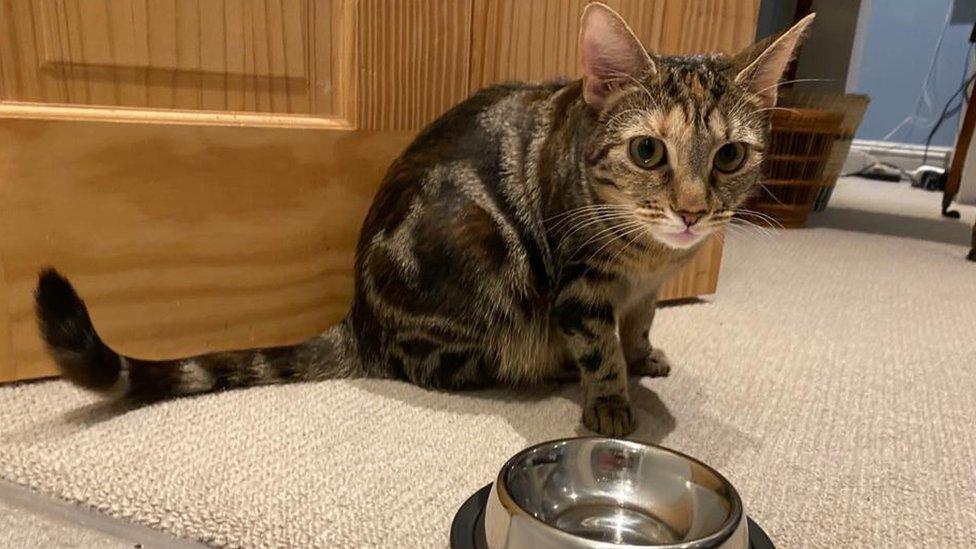Lockdown dogs rehomed and getting another chance of love
- Published
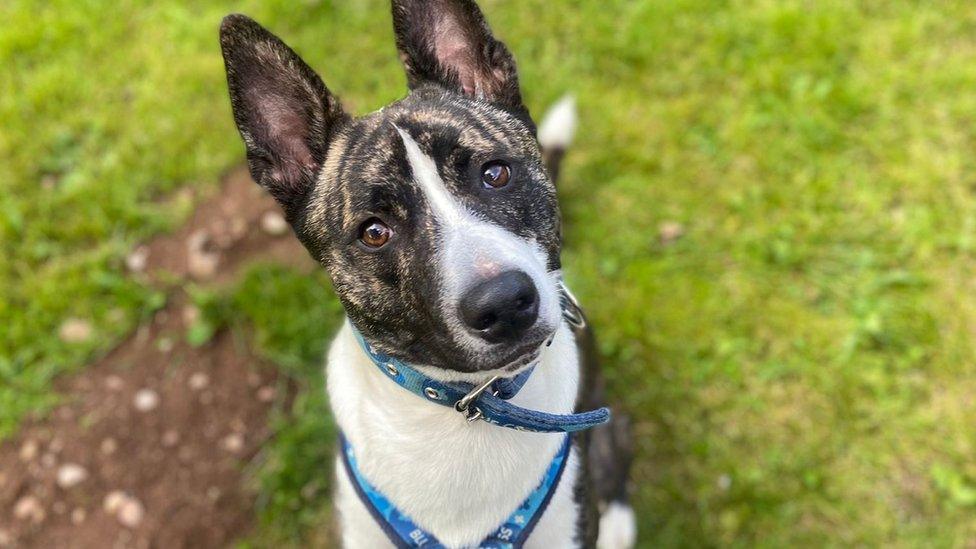
Dexter has lived in three different homes in the past year as his original owners tried to find him a new home
Animal charities say they are seeing a rise in pets being surrendered as families head back to the office after lockdown restrictions ended. The BBC spoke to one about its work helping dogs and cats find new homes.
Dexter is one year old, but has already lived with three families after his original owners tried and failed to find someone to look after him when they couldn't.
The Husky-cross, once a lovable and fluffy pup, had grown into a dog with little socialisation and training during England's lockdowns.
"The family couldn't cope with Dexter as he got bigger. Before he came to us he had lived in three homes after his original family tried to rehome him themselves," said Caroline Oram, pet welfare assistant at Blue Cross Bromsgrove.
Dexter is now in a foster-to-adopt programme as they work with a family to settle him in to a new life, providing lots of reward-based training to stop bad traits like jumping.
Rehoming charity The Dogs Trust said it had seen a 35% increase in calls related to giving up a dog during the summer.
It had witnessed a significant spike in pet owners considering adoption following the announcement that most Covid measures were being lifted in England in July, searching for information on its website.
'We do not judge'
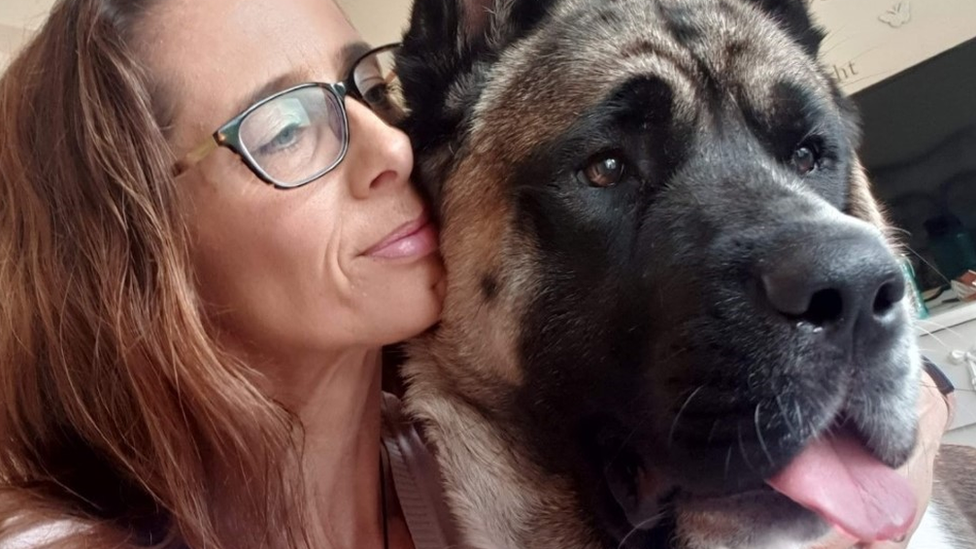
Caroline Oram finds it really rewarding fostering dogs and eventually giving them an opportunity to experience love in a home
Caroline said the centre, which would ordinarily see older dogs come for rehoming, is seeing first-hand the hardship and emotions that come with giving up a pet.
"You think a pet is for life but then when a family issue happens like a family break up… or prioritising money and having a roof over your head and unforeseen circumstances, it really is very emotional.
"You really feel for people and their situations because they don't know what to do. They are doing the responsible thing and coming to a rescue. We do not judge people."
Caroline is urging people to approach their local rehoming charities before going online and advertising their dogs after seeing some dogs move across multiple homes.
"It's easy to buy online but you don't know where your dog will go to, where someone like Blue Cross matches potential adoptees with assessments and the peace of mind that dog will be looked after - and if an adoption does fail, it can be brought back to us."
One recent online advert for a German Shepherd said the lockdown puppy does have "a few issues… and suffers anxiety and separation anxiety so does need to live with someone who is at home either all day or most of the day... as we can sadly no longer offer as we are both back out at work".
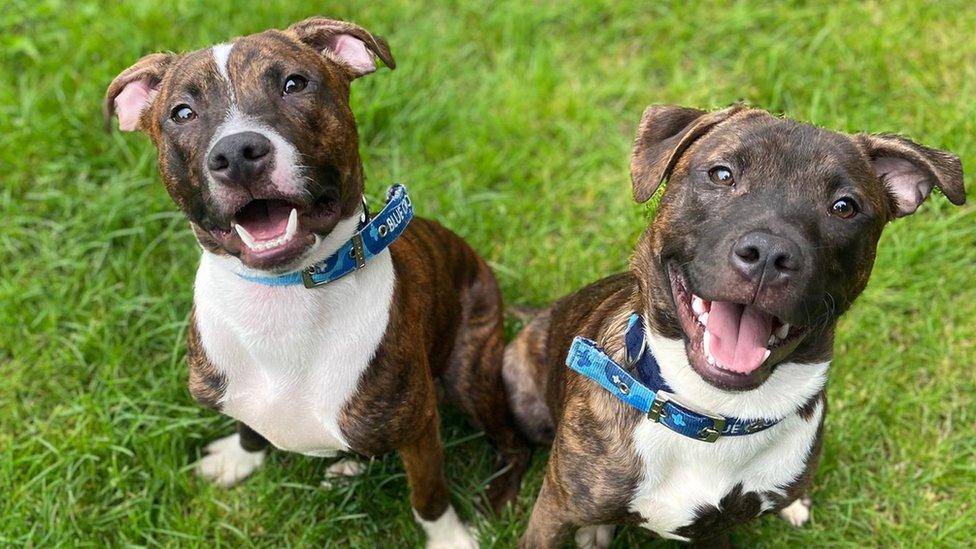
Luigi and Boyce, two Staffordshire Bull Terriers had barely been outside when they were taken in by Blue Cross in Bromsgrove
Luigi and Boyce, two Staffordshire Bull Terriers brothers aged six months, had barely set foot outside when they were taken in by the animal rehoming charity in August.
"We're making slow introductions like letting them go on grass or walk by cars for the first time," said Caroline. "They are very loving and gentle and we are slowly building their confidence."
As well as dogs, Blue Cross is also seeing cats and unwanted rabbits and guinea pigs being brought in.
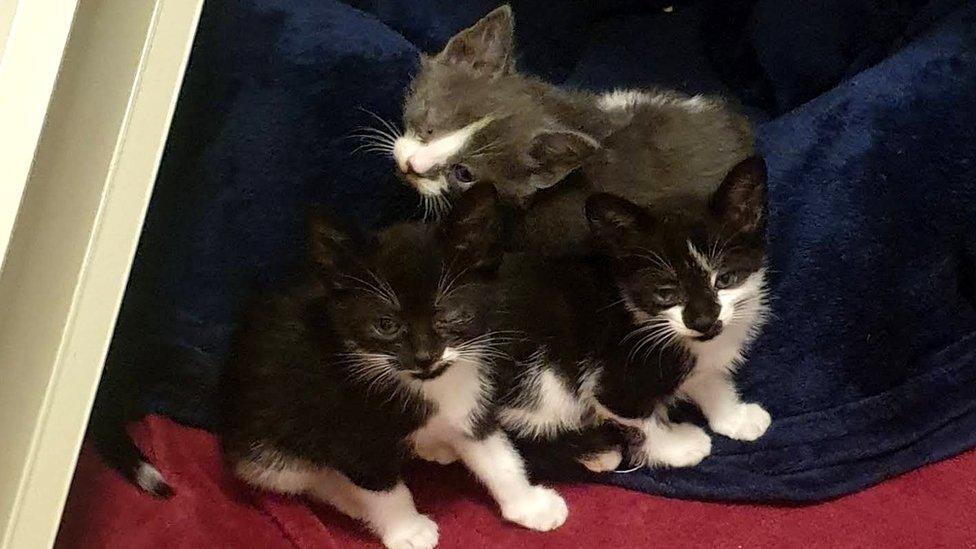
These three siblings are now being cared for after being dumped
Three kittens - Smokey, Peter and Pumpkin - were found in a box on wasteland in Grimsby barely four weeks old and all suffering with cat flu. They are now on medication and "receiving lots of TLC from the Bromsgrove team".
The charity believes the lack of neutering during lockdown has led to a rise in unwanted cats and kittens.
Caroline, who said she was terrified of dogs before working for Blue Cross, now fosters them to give animals another chance of being loved.
"The amazing thing is they do forgive, no matter what happens. If they get the love and training - they just thrive. When life fails them, they can begin again."

Thinking of getting a dog?
Here are some pointers to consider from The Dogs Trust, external before committing:
Do you have the time to devote to training and fun times?
Are you happy to walk in all weathers?
Spend money on vets bills and food
What is your long term outlook for keeping a dog?
Can you spend more time at home?

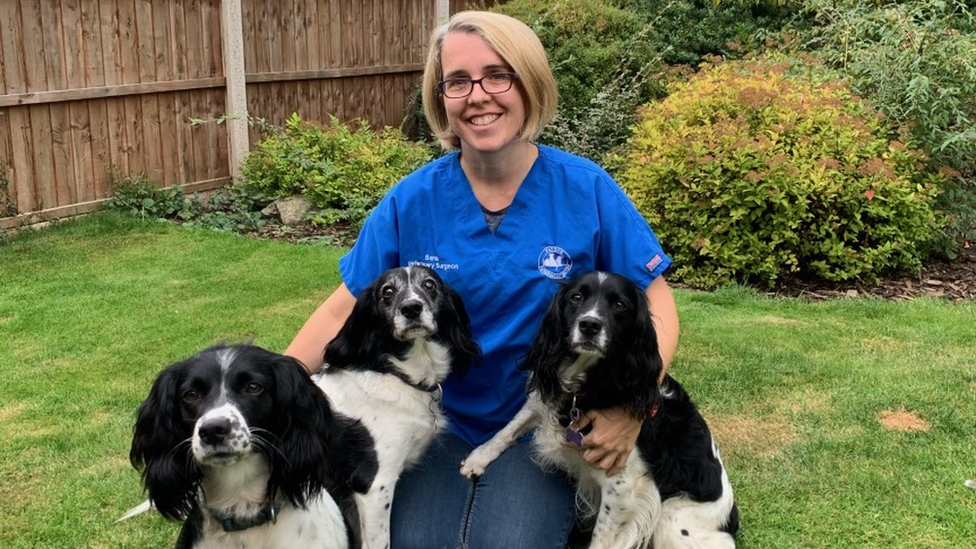
Vet Sarah Wellstead said owners could consider dog training or a dog behaviourist if problems arise
Sarah Wellstead, clinical director at Haygate Vets in Telford, said she is seeing an increase in dogs with separation anxiety and poor socialisation traits, including destructive behaviour and aggression - but said help is out there for owners.
The lack of access to dog-training classes, socialisation around other dogs and constant human interaction over the past 18 months has also left some dogs some unable to read other dog's body language, she added.
"If you're not sure what help you need, your first port of call should be your local vet. They will know about local behaviourists, local trainers, and signpost you to rehoming centres and other facilities.
"It is a very brave person that says 'actually I am struggling, and I need some help',".

Follow BBC West Midlands on Facebook, external, Twitter, external and Instagram, external. Send your story ideas to: newsonline.westmidlands@bbc.co.uk, external
Related topics
- Published10 September 2021
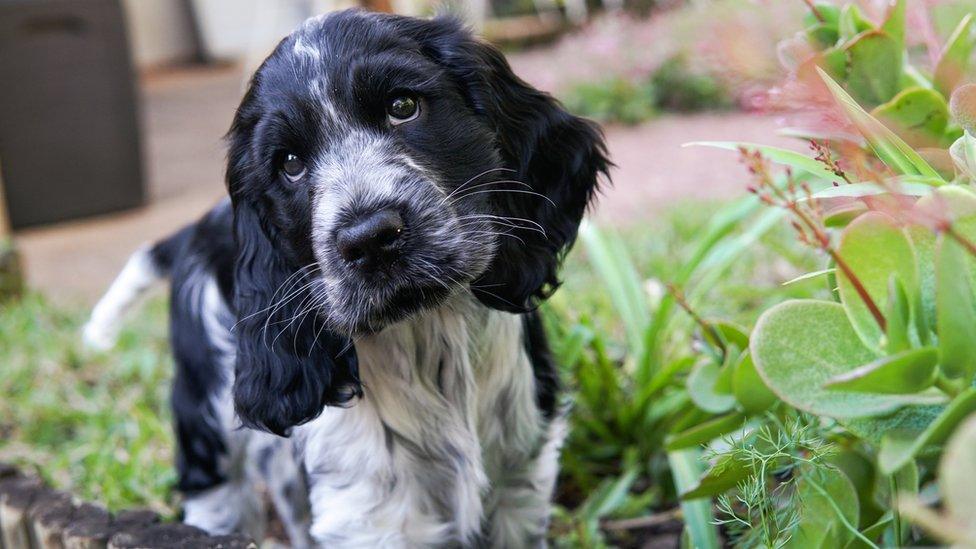
- Published18 September 2020

- Published12 March 2021

- Published9 March 2021
